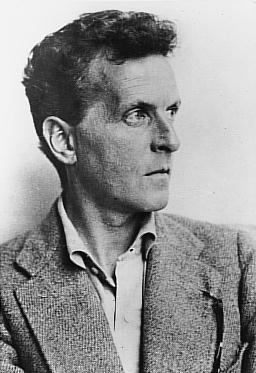-- Ludwig Wittgenstein*
I wonder how much it would cost to have that epigram carved onto every high school in the United States?
I don't pretend to understand the work of Wittgenstein, who is generally regarded (perhaps on faith?) as the greatest philosopher of the 20th century. He was an intriguing person, regardless of his philosophical work; his family history of suicide and mental illness is remarkable. His father Karl was a speculative, innovative genius in business and industry and made himself one of the richest men in Europe. Ludwig had four older brothers, three of whom (Rudi, Hans, and Kurt) died by suicide. The surviving brother and Ludwig himself both had recurring episodes of suicidal depression. Ludwig said that he first thought about suicide when he was 10 years old. From an interesting New Yorker review of a family biography:
Sometime in 1901, Hans fled from his father and went to America, much as his own father had done thirty-six years earlier. In 1902, he disappeared, by most accounts, from a boat, which may have been in the Chesapeake Bay, perhaps on the Orinoco River in Venezuela, or in several other places. Wherever it was, no one doubted that he had committed suicide. Hans’s disappearance was a banned topic.
Rudi was a twenty-two-year-old chemistry student in Berlin when he walked into a bar on a May evening in 1904, requested a sentimental song from the pianist, and then mixed potassium cyanide into a glass of milk and died in agony. The suicide note left for his parents said that he had been grieving over the death of a friend. A more likely explanation is that he thought he was identifiable as the subject of a published case study about homosexuality. After Rudi’s funeral, Karl forbade the family to mention him ever again. Waugh thinks that this enforced silence, which the dutiful Mrs.Wittgenstein supported, created a permanent rift between parents and children. The exact circumstances of Kurt’s suicide, which took place on the Italian front in 1918, are unknown. He was generally regarded as cheerful, but Hermine recorded that he seemed to carry “the germ of disgust for life within himself.”At one point in his life, Wittgenstein toyed with the idea of becoming a psychoanalyst. He regarded highly Freud's Interpretation of Dreams, Augustine's Confessions, and Joyce's Portrait of the Artist as a Young Man. I would contend that all three of those books are essential reading for aspiring clinical psychologists. Judging from the letter below, I suspect that Wittgenstein himself had some formidable instincts for the healing arts.
When [Wittgenstein's close friend] Drury was in his first period of hospital residence he was dismayed by his ignorance and clumsiness. He told Wittgenstein that perhaps it had been a mistake for him to become a doctor. The next day he received a letter:
You said in the Park yesterday that possibly you had made a mistake in having taken up medicine: you immediately added that probably it was wrong to think such a thing at all. I am sure it is. But not because being a doctor you may not go the wrong way, or go to the dogs, but because if you do, this has nothing to do with your choice of a profession being a mistake. For what human being can say what would have been the right thing if this is the wrong one? You didn’t make a mistake because there was nothing at the time you knew or ought to have known that you overlooked ... The thing now is to live in the world in which you are, not to think or dream about the world you would like to be in. Look at people’s sufferings, physical and mental, you have them close at hand, and this ought to be a good remedy for your troubles ... Look at your patients more closely as human beings in trouble and enjoy more the opportunity you have to say ‘good night’ to so many people. This alone is a gift from heaven which many people would envy you.
In 1941 Drury was posted to the Middle East. Wittgenstein came to Liverpool to say goodbye to him, and presented him with a silver drinking cup. Wittgenstein: ‘Water tastes so much nicer out of silver. There is only one condition attached to this gift: you are not to worry if it gets lost.’ Later in the war Drury was posted back to England to be a medical officer in a landing craft in the Normandy invasion. When he came to say goodbye one remark of Wittgenstein’s was: ‘If it ever happens that you get mixed up in hand to hand fighting, you must just stand aside and let yourself be massacred.’(Source)
I'm still not sure that I fully comprehend that last statement. Was Wittgenstein making a general statement on ethics or was that directed to Drury personally? In any event, it has been stuck in my head for months. I am leaning towards the position that he might very well be right.
*As quoted in The Beginning of the End (2004) by Peter Hershey, p. 109


No comments:
Post a Comment
Note: Only a member of this blog may post a comment.